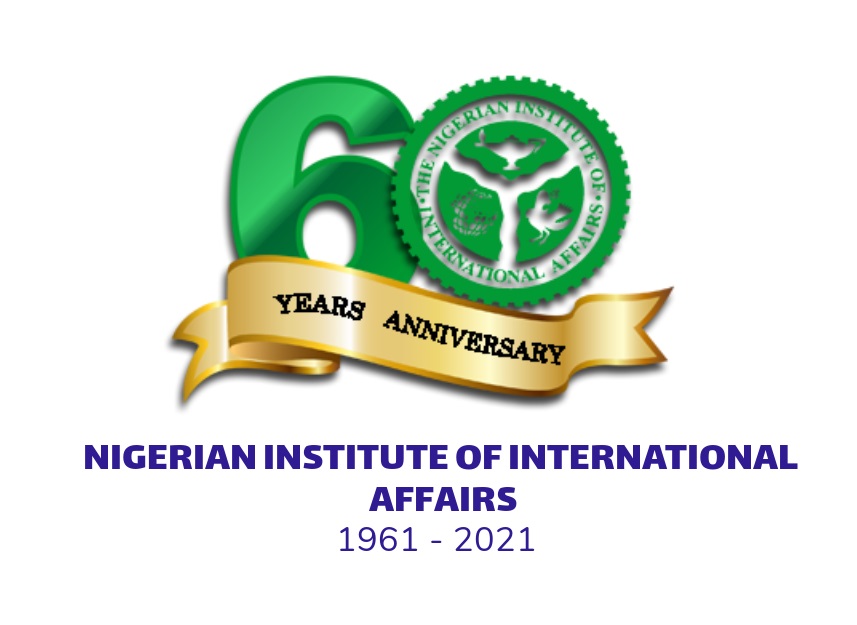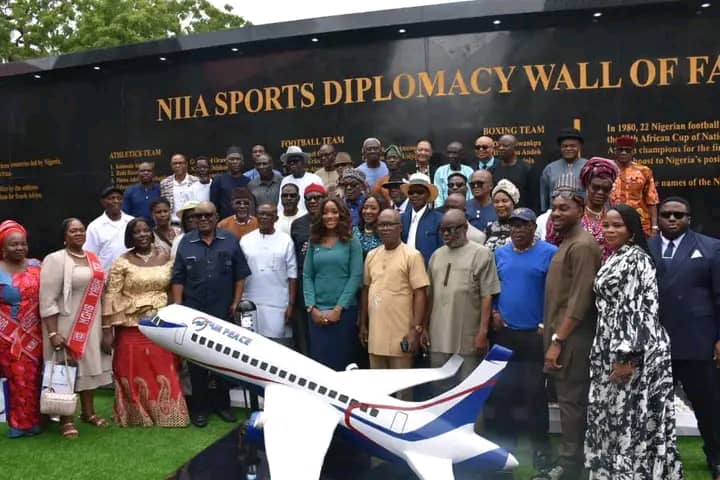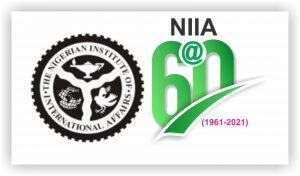They came from across the world to be part of an event, which some of them said should have happened 47 years ago.
With tears of joy, the members of the Nigerian contingent to the Montreal 1976 Olympic Games, which the country led an African boycott to protest New Zealand’s romance with the Apartheid regime in South Africa, heaved sighs of relief that at last, their sacrifices were not in vain.
Organised by the Nigerian Institute of International Affairs (NIIA) and sponsored by Air Peace, the event christened ‘Investiture of Air Peace Sports Diplomacy Ambassadors’ and ‘NIIA Sports Diplomacy Wall of Fame,’ drew members of the diplomatic corps, sports personalities and captains of industry to Eko Hall on Friday to celebrate the Nigerian contingent to the botched 1976 Games.
The occasion was also used to celebrate members of the 1980 Green Eagles, who won Nigeria’s first African Cup of Nations title at the final in Lagos.
The 45 athletes were already in Montreal for the 1976 Olympics when Nigeria and 26 other countries, the majority of them Africans, pulled out from the Games.
The countries withdrew due to an unresolved diplomatic row over New Zealand rugby team’s tour of the then Apartheid South Africa, where Black people were subjugated by the racist regime.
Nigeria, then under the leadership of General Olusegun Obasanjo, led the boycott because the International Olympic Committee refused to impose a ban on New Zealand, whose rugby team toured South Africa in defiance of the United Nations’ resolution of a total sporting embargo against the racist Apartheid regime.
Friday’s event started at the NIIA, Victoria Island, Lagos, where a four-metre-tall NIIA Sports Diplomacy Wall of Fame, which bore all the athletes’ names, was unveiled.
Many of the athletes, who are now in their 70s, were present at the ceremony, while the deceased, the late Dele Udoh, Muda Lawal, Okey Isima, Aloysius Atuegbu, Taiwo Ogunjobi, among others, were represented by members of their family.
Speaking on the import of the recognition of the heroes of 1976, Segun Odegbami, who was in both the 1976 Olympics team and the 1980 Nations Cup squad, said the event would heal the wounds of the past.
According to Odegbami, who was one of the brains behind the event, “One of the reasons we need to honour our sporting heroes with gestures like this is to showcase the effect and impact of their actions to the world, let the world know they deserve to be honoured.
“We came back from Montreal without any fanfare and we all went our separate ways without our role in the struggle for the emancipation of South Africans properly recognised.
“Some of us had trained for four years and made sacrifices and were on the verge of achieving our Olympic dreams when it was all taken away.
“Of course, it was ultimately for a good cause, but some of the athletes made huge sacrifices to get to the Olympics, only to be stopped at the gate.
“Today is a historic day that will be remembered for a very long time. Even some of the athletes, who had not forgiven the country for years, have now healed because of this great honour.”
Air Peace Chairman, Allen Onyema, described the occasion as reward for selflessness in service to the country.
“These heroes deserve great honour for returning to Nigeria without causing any problems, without seeking for asylum in Canada after the country had been withdrawn. These are the heroes and heroines that should always be celebrated for their sacrifices.”
Reeling out the names of the athletes one by one, Onyema said: “Most of them never attended another Olympic Games after the Montreal withdrawal and we should always honour them.”




